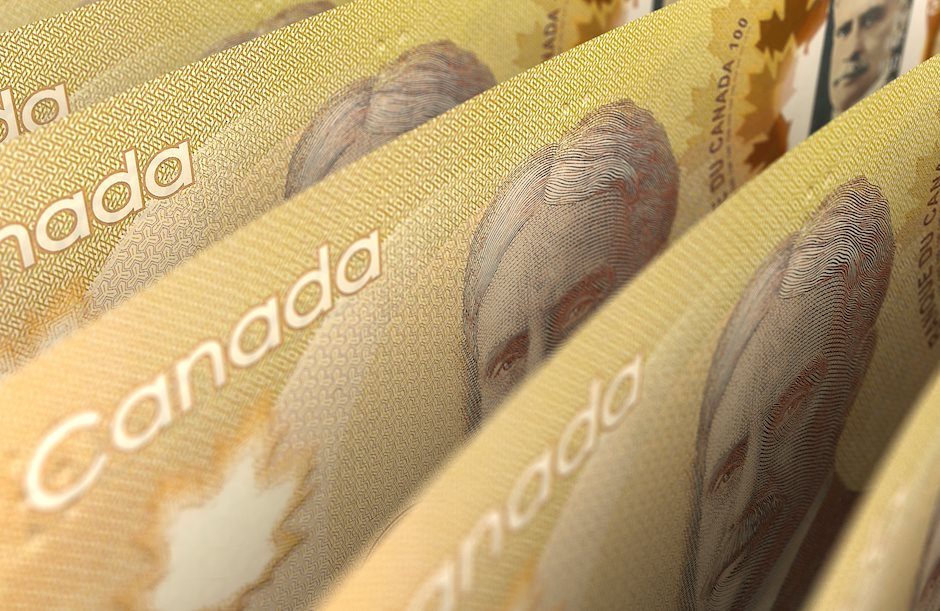Canadian Dollar continues weak as markets digest low-tier data from the US
- USD/CAD holds its position above 1.3900, close to its three-month high recorded on Monday.
- Oil prices fall sharply as limited military operations alleviate fears of an all-out war in the Middle East.
- US Dollar strengthens as strong housing figures seem to outshadow soft JOLTs data.

The USD/CAD pair continues to gain traction on Tuesday with the quote rising by 0.23% to 1.3910 at the time of writing. The pair is trading near its three-month high of 1.3908 recorded on Monday and has been supported by a combination of factors, including the USD’s strength and a decline in oil prices.
The Greenback has been strengthening in recent weeks on the back of positive economic data, which has bolstered expectations for interest rate cuts by the Federal Reserve (Fed) in November. US JOLTs data from September came in mixed but somewhat below consensus. On the other hand, several home price indices from August beat expectations, demonstrating continued strength in shelter inflation.
Daily digest market movers: Canadian Dollar pressured by lower Oil prices
- WTI Oil price hovers around $67.50, weighing on the commodity-linked CAD as Canada is a major oil exporter.
- Iran's response to Israeli military actions could further impact oil prices and CAD. However, the lack of response to Israel’s weekend missile strikes has reduced market anxiety.
- BoC Governor Macklem explains that the recent aggressive rate cut was justified, considering previous inflation-fighting hikes.
- BoC aims to find the neutral rate that balances economic stimulation and restraint.
- On the US side, JOLTS Job Openings declined to 7.44 million in September, falling short of market estimates. Hires and total separations in the US economy remained stable, while quits and layoffs showed minimal changes.
- Markets await the Nonfarm Payrolls report from September to be released on Friday. Gross Domestic Product (GDP) revisions on Wednesday will also be important.
USD/CAD technical outlook: Bullish momentum steady despite overbought RSI
The Relative Strength Index (RSI) is currently at 79, indicating that the pair is heavily overbought. The RSI's slope is rising sharply, suggesting that buying pressure is rising. The Moving Average Convergence Divergence (MACD) is green and rising, suggesting that buying pressure is increasing. The overall technical outlook is bullish, but a correction is still possible.
Key support levels are at 1.3870, 1.3850 and 1.3830, while resistance levels are at 1.3900, 1.3915 and 1.3930.
Fed FAQs
Monetary policy in the US is shaped by the Federal Reserve (Fed). The Fed has two mandates: to achieve price stability and foster full employment. Its primary tool to achieve these goals is by adjusting interest rates. When prices are rising too quickly and inflation is above the Fed’s 2% target, it raises interest rates, increasing borrowing costs throughout the economy. This results in a stronger US Dollar (USD) as it makes the US a more attractive place for international investors to park their money. When inflation falls below 2% or the Unemployment Rate is too high, the Fed may lower interest rates to encourage borrowing, which weighs on the Greenback.
The Federal Reserve (Fed) holds eight policy meetings a year, where the Federal Open Market Committee (FOMC) assesses economic conditions and makes monetary policy decisions. The FOMC is attended by twelve Fed officials – the seven members of the Board of Governors, the president of the Federal Reserve Bank of New York, and four of the remaining eleven regional Reserve Bank presidents, who serve one-year terms on a rotating basis.
In extreme situations, the Federal Reserve may resort to a policy named Quantitative Easing (QE). QE is the process by which the Fed substantially increases the flow of credit in a stuck financial system. It is a non-standard policy measure used during crises or when inflation is extremely low. It was the Fed’s weapon of choice during the Great Financial Crisis in 2008. It involves the Fed printing more Dollars and using them to buy high grade bonds from financial institutions. QE usually weakens the US Dollar.
Quantitative tightening (QT) is the reverse process of QE, whereby the Federal Reserve stops buying bonds from financial institutions and does not reinvest the principal from the bonds it holds maturing, to purchase new bonds. It is usually positive for the value of the US Dollar.
Author

Patricio Martín
FXStreet
Patricio is an economist from Argentina passionate about global finance and understanding the daily movements of the markets.

















